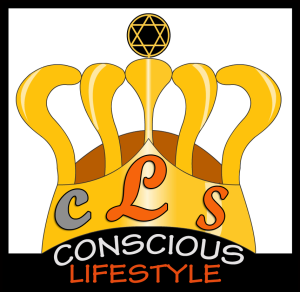Blog
Distress – What does the word distress mean
- May 9, 2013
- Posted by: admin
- Category: Industrial system New moon/full moon Political system psychological
Distress noun [ U ] UK /dɪˈstres/ US /dɪˈstres/
Distress is a feeling of extreme worry, sadness, sorrow or pain: Loss of something or fear of losing something can cause distress.
In simple words – What does distress mean?
To be distressed means to cause all that pain, bad memories, suffering and anxiety, jealousy, fear, chemistry (chemical) of toxins, genetically modified elements, unforgivness,
which is contained into someone’s mental state and (flesh) to escalate, to metabolize or to enter into the state called chemical reaction.
— in other words, distress means to stress somebody out.
People under constant distress are more likely to become sick, mentally or physically.
Distress explained psychologically:
Distress is an emotional state that is triggered by taking someone a way from his familiar comfort zone, cultivated social environment, addiction or habits.
The negative state of narcissism in one’s natural traits, when it reaches it’s full growth it becomes a psychiatric status of distress.
New changes stimulating the emotional state of distress:
Whenever someone is about to do something new, which has the ability to take him or her from his old habits,
that person may become distressed, showing traits of disobedience, refusing to take instructions, becoming suspicious,
due to the fact that he/she is about to do something which is not familiar to his habits.
The negative social activities like a job which makes a person to pursue after the love of money,
friends with a negative influence over someone’s life, drugs, immoral behaviors,
Living a materialistic lifestyle which makes a person to entertain the habits of buying and selling of unnecessary products, the toxic relationships that one keeps etc,
These type of negative social activities can become a state of distress which distresses a person during the time when new changes are happening in one’s life.
Why?
Because these same relationships are the ones that will try to influence the person into the state of making him fearful, so that he may not be able to accept or enter into his new changes.
For example:
If a little child is taken to kindergarten for the very first time, on that first day that little child will get a little bit distressed.
1: Because of the new faces that he as found in that new place.
2: Because the child has been plucked from the familiar environment of his home, and then grafted into a new environment which he or she was not familiar with.
And because of this new experience that the child is not familiar with, that is what caused the emotional state of distress.
Another example:
It’s likened to getting new organ transplantation, the first reaction is that one’s body tries to reject the organ by getting ill, showing side-effects of fevers etc,
But after a process of time the body starts to get used of the new organ, and embraces it.
You should remember that:
New experiences – every new social activity, every new relation or new challenge that a person embarks on, can stimulate an emotional sense or feeling of distress.
– And when the person who is being confronted by distress, is living in the state of disobedience against God’s commandments,
– Consuming alot of genetic modified and unclean foods,
– Walking in a unforgivness, jealousy, anxiety, hatred, revenge etc, this will increase and worsen the mental state of distress in one’s life.
Why?
Because whenever you are starting something new, there is always something familiar (negative habits) or old ways of doing things that you are loosing.
And because you are losing something that is familiar to you, for the sake of gaining something new,
that is why the emotional state of distress also known as the state of emergency is triggered.
And another reason could be that:
When a person is taken away from his familiar social status or habits,
that person will start to show signs of being distressed because of the loss (feeling like his losing something which was close to him),
the longing for, and the chemistry or bond that he had with his previous habit will start to kick in.
Symptoms:
* Agitated
* Anxiety
* Fidgeting
* Feeling dizzy
* Getting depressed
* Feeling a sense of loss (loneliness, sadness or sorrow)
* Wanting to go away or escape from the place which motivates change in one’s life
* Biological clock in the guts of one’s stomach, will be directing his body to return back to the actions, behaviors that are familiar to one’s habit.
* Losing apatite, when he or she eats, he will feel like throwing up or vomiting the food.
* Lacking courage
* Finding excuses to skip doing the things which will help one’s development (Proscanating)
* Finding excuses why one should not trust, or fearing to trust
Article was written by Conscious lifestyle (Ap Ngabo Flimpoman) for the Visionary School
